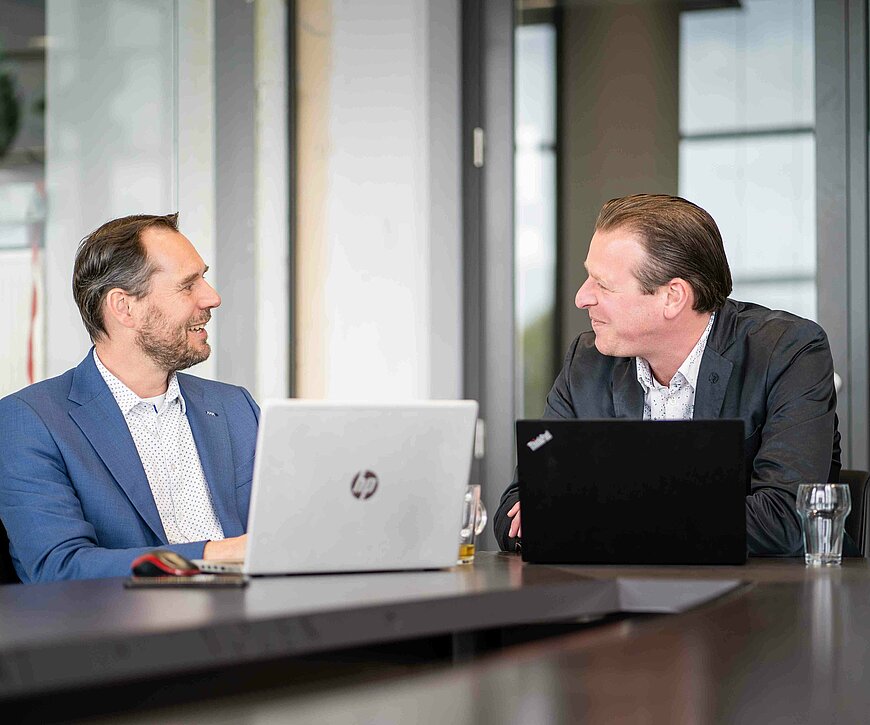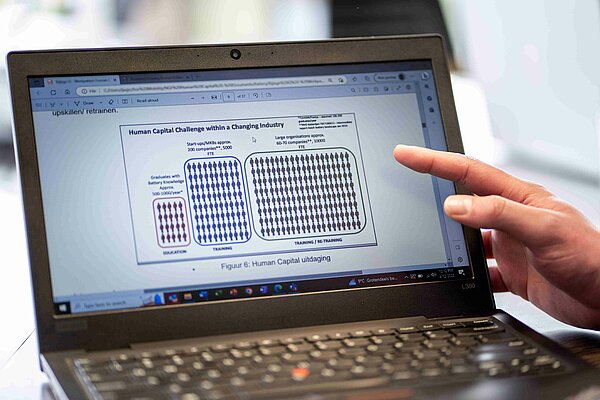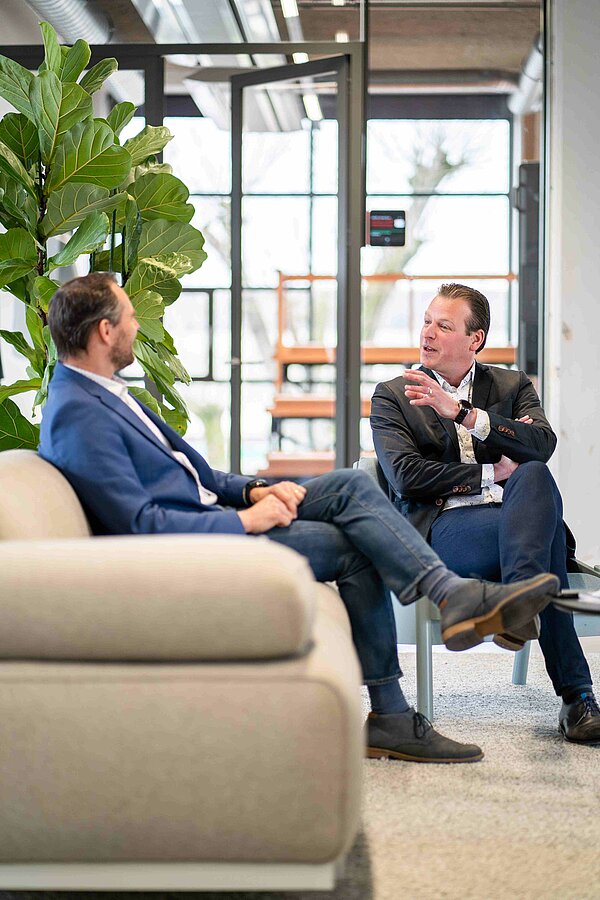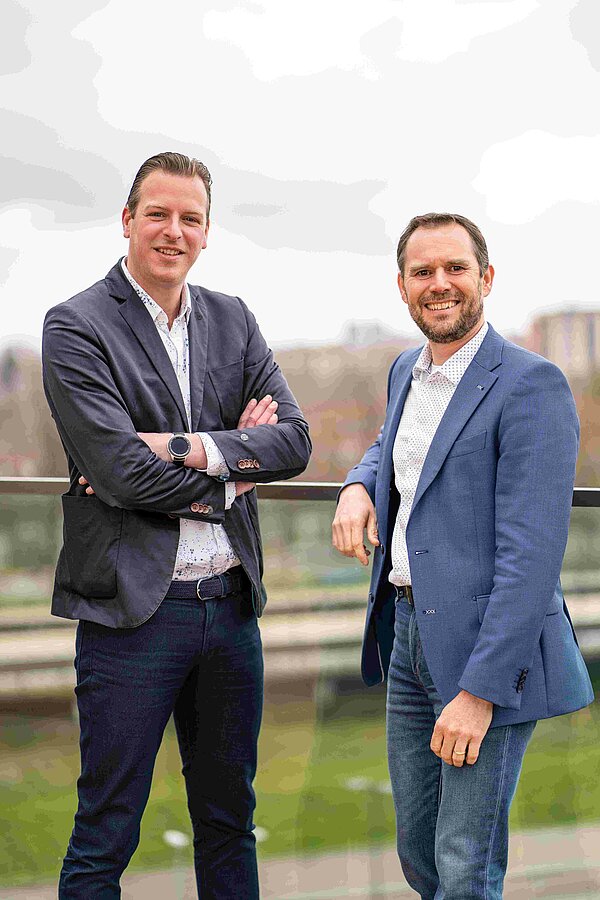Batteries as a billion-dollar business? Then we also need people.

'Focusing on human capital is important to make the battery sector strong, agile and future-proof'
Batteries will be one of the most important components for the energy transition. They are necessary for storing renewable energy, like wind and solar energy and for electrifying cars, buses and trucks. This offers many opportunities for the Dutch high-tech industry. But for achieving the innovation ambitions in the battery technology chain in the Netherlands, the availability of technical and IT talent is a crucial condition for success.
The expectation is that the demand for employees will double in the next eight to ten years, which means that 10,000 extra people will be needed. The Battery Competence Cluster – NL (BCC-NL) is therefore committed to a unique and innovative Human Capital approach for the battery sector, in collaboration with employers and training institutes. The driving forces on behalf of the BCC-NL for this renewed approach are Thomas van Berkel, Program Manager Human Capital of ACE Mobility and Richard Kerste, Senior Project Manager Labour Market of Brainport Development.
Prepared for the upcoming talent issue
In order for the Dutch battery sector to take the next step in battery technological innovation, people are needed to do so. Given the shortage on the labor market for technology and IT, it is important to work together and set goals. "That is why we have created the Human Capital approach, which is based on an extensive analysis of the labor market. The plan states how we ensure that the talent issue can be properly filled in for the coming years. We do this with the sector and all partners such as the business community and knowledge institutions," explains Thomas van Berkel, "Education is connected at all levels, from MBO, HBO, WO and the practical trainers."

National Growth Fund can help
In February, the Battery Competence Cluster – NL submitted an application to the National Growth Fund. This proposal asks for a subsidy from the government to strengthen the battery chain in which companies and knowledge institutions jointly develop and market new, more sustainable batteries. This is important for making mobility more sustainable, it contributes to economic development and it strengthens the international position of the Netherlands.
"Thomas and I have joined forces to set up the Human Capital work package within this application. The aim is to promote the inflow, development and retention of technical talent that is necessary to achieve the objectives of the proposal," adds Richard Kerste.
Cooperation between educational institutions and employers
The program has been set up with a long-term vision and an integrated approach. Including activities such as training programs for upskilling and reskilling employees, traineeship programs for new talents and mentoring programs for new companies in the battery sector, which need to learn how to deal with HR challenges. What is clear is that, given the scarcity in the labor market, there is no quick fix.
"You need to tweak and act on different levels and have a broad plan for how you are going to fill in the talent issues. We do this by creating a layered ecosystem and using existing activities and programs at national and regional level and, where necessary, optimizing them. The goal is to create enthusiasm among employers, educational institutions and other stakeholders to work together in this Human Capital ecosystem. For example, we need to get important topics of companies on the agenda of the of training and education institutes. So that students learn about it during the training and can get started with it. Everything needed to get more inflow from education into the sector, with experience in, for example, challenging research projects and student team challenges. Employers also need to look at the world in a different way. And in the longer term; you can't do this alone, so how are you going to collectively profile yourself as a sector in all aspects to education and to the labor market," says Thomas.
“You need to tweak and act on different levels and have a broad plan for how you are going to fill in the talent issues."
Cyclical approach for more agility
The strength of the plan is that there will be a Human Capital agenda for the next eight years. But no one can look into the future, and know what is changing in society or geopolitics. By already mapping out many different interventions, the team can make adjustments when necessary. Richard: "With a cyclical and programmatic approach, we are able to make timely adjustments and adjustments. You know things are going to change, just not when. The battery sector may be very different in three years' time because something is happening in the world. The continuous evaluation and measurement of the actions is therefore important. In this way, we are able to make continuous adjustments and we remain agile with the Human Capital work package. Moreover, the agenda has been created in collaboration with many companies and educational institutions. As a result, it is widely supported."

Employers need to change with it
All possible solutions needed to address the shortage in the labor market for the sector are on the table. Such as the fact that educational institutions will better align their training programs with the demand of industry, but also, for example, retain staff. "Conservation doesn't happen by itself, you have to work for that. That includes modern employment practices. One of the success factors is our experience in this area," Richard continues.
"We know that you not only have to set up an action program with interventions, but that you also have to take employers along to look at talent differently. We can set up as many actions as we want, if the employers do not join, it will not work. That is why we show companies possible HR innovations and modern employment practices. This means that employers have to work on themes such as Lifelong Learning and Development, remote working and part-time jobs. Solutions that allow you to retain people for longer. Our role is to make the entire industry strong, agile and future-proof."
From ad hoc response to long-term thinking
A conservative estimate is that around 10,000 jobs will have to be filled in battery technology in the coming years, mainly in technical and IT directions. That number of 10,000 is on top of the current number of jobs. Pure growth. "Then you know what to organize in the current market in terms of upskilling and upskilling, inflow, recruitment and labor-saving solutions. Large organizations need large volumes of suitable labor. So we really need to focus on retraining," Thomas says. "Maintaining support among employers is important here, because it is not about a short-term solution. Companies must remain continuously connected to build that ecosystem together. Filling vacancies now is not the only priority. It remains necessary to look beyond daily business and build the future together, so that sufficient talent remains available in the longer term."

The entire chain must participate in training
With the development of new batteries, other topics will also become important.
Richard: "If we get more cars with even more advanced battery systems, we will also have challenges with recycling and demolition, for example. If an electric vehicle has an accident and has to be scrapped, the person in the scrapyard must know how to handle, process and dispose of such a battery. Further training programs must also be drawn up for this purpose. There are many disciplines that we need to work on broadly. You have the technical part in which you have to train people, but also everything that surrounds it. Such as infrastructure, logistics, safety, laws and regulations. Everyone has to participate. We need to plan ahead to organize training programs."
International cooperation for a stronger Netherlands
The developments in the countries around us are continuously monitored. "It is important that we also claim our spot in the chain on an international level, and find solutions that are complementary and applicable in the Netherlands. In the field of Human Capital, the Dutch battery sector is not on an island and there is constant attention for international cooperation in Europe, for example, in the field of education, research and training," Thomas concludes. "Because that's where our earning capacity, the preservation and the agility of our industry lies".

